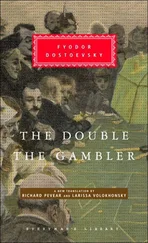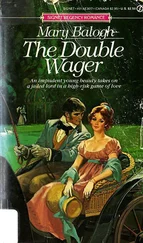“Absolutely,” she answered simply.
“When the person you’re interviewing has finished responding to your question-said all he or she wants to say-you say, ‘Uh-huh.’ And then go silent. Wait them out. Don’t worry, you won’t have to wait very long. Nine out of ten times they’ll feel compelled to add something. And, invariably, it’s a real golden nugget.”
“Really?”
“Works almost every time-even with seasoned subjects. The most important things they tell you will be after the ‘uh-huh.’”
“I’ll keep that in mind.”
“Have you Googled Bobbie Crocker?”
“I have. Buchanan, too. And I found nothing. And that was after trying every combination I could think of for Crocker and Bobbie and Buchanan and Robert. I also went to his intake form and got things like his Social Security and VA numbers.”
“As a journalist, I’m proud of you. As an ethicist, I’m not so sure.”
“Do you think it was wrong of me to get those numbers?”
“A little dubious, maybe. But I think it’s fine. Really. It’s not like you’re going to steal his identity,” he said lightly. “Are you?”
“I don’t know, Bobbie’s a pretty androgynous name…”
“True. Especially in parts of the South.”
Instead of deodorant, David wore powder under his arms that smelled like verbena. She never noticed it except when they were in bed, but she loved the aroma.
“I should also see if there’s anything about a car accident in Grand Forks,” she said.
“You should, but it was so long ago that it’s highly unlikely there is…unless…”
He yawned, and so she poked him good-naturedly to continue.
“Unless the kid who died with Buchanan-”
“Assuming Buchanan really died,” she interrupted.
“Yes, assuming. But you might be able to figure that out from the Social Security number. In any case, my sense is there won’t be much about a car accident unless the other kid was the son of an important family in Grand Forks, and a newspaper did a retrospective on the clan in the last decade. If you’d like, I could do a LexisNexis search at my office.”
“You wouldn’t mind?”
“No, of course not. I must confess, I don’t expect we’ll find anything. But it can’t hurt to check.”
“Thank you.”
“And this Long Island woman said her brother was buried in Chicago, right?”
“Yes. Rosehill. In 1939, I think.”
“Well, there should be a death certificate we can track down that would verify-or, if we can’t find one, perhaps dispel-her story. Let me do a little work online. There are research services we subscribe to at the newspaper that are only available to journalists. Let’s see what else we can come up with. And if that doesn’t work, there’s always shoe leather.”
“Shoe leather?” she asked. “Is that another search engine?”
He laughed and she felt his chest rise. “No. If you’re really excited by your new hobby, it’s you going to Rosehill and examining the records. It’s you going to the county courthouse in your corner of Long Island to see what papers exist. The local library, too. Come to think of it, there may be a newspaper article there if her brother really did die in a car accident.”
On the bureau opposite his bed was a photo of his two daughters at the top of Snake Mountain, a foothill to the south with a flat summit. Their hair was windblown and wild, their round little faces were smudged with grime from their hike, and they looked more than a bit like beautiful, feral children. David had taken the picture that summer, and Laurel imagined him kneeling five or six feet away from them, not even the slightest bit winded. He was trim and athletic and strong: He would live a long time. She guessed that he would outlast her own father by decades, and suddenly she was very glad for those girls. They had a father who was committed to them and who took good care of himself. The man might not be a part of her life in the distant future, she thought, but he would most certainly be a part of his children’s.
IT WAS A LONG SHOT and Laurel expected nothing. HIPAA, the Health Insurance Portability and Accountability Act, prohibited health-care providers from revealing information about their patients to outsiders not connected to the individual’s ongoing care. Its purpose was to protect people’s privacy and ensure that their medical records were never used against them or became public without their consent.
Nevertheless, the next day, Thursday, Laurel did call the state hospital in Waterbury to see if anyone there would tell her anything about a patient named Bobbie Crocker. No one could-or, to be precise, no one would. She spoke with a nice young guy she imagined to be about her age who worked in patient care, and then a polite but guarded assistant in the director’s office. She explained to them both that she was from BEDS and told them exactly why she was interested in any information they felt they could offer.
They could offer none.
Neither was even allowed to acknowledge that an old man named Bobbie Crocker had once been a patient at their hospital.
LAUREL WAS GOING to the darkroom that evening, but she stopped by her apartment on the way there and discovered a note that Talia had left for her on the coffee table in the living room.
What’s up, stranger? Is it my breath? I should be back around 6 or 6:30. Let’s have dinner and catch up. I want to hear all about your trip home.
xoxoxo , T
She hadn’t seen Talia since before she had left for Long Island. Her roommate had been out with friends on Tuesday night, and she’d spent Wednesday night at David’s. They might have had breakfast together on Wednesday morning after Laurel had been to the pool, but because she hadn’t been to the office in a couple of days she went straight to the shelter. It was almost unheard of for the two of them to go this long without connecting when they both were in town. She considered changing her plans and not going to the darkroom until after dinner, but she decided in the end that she didn’t want to wait that long. Besides, she figured she would see Talia on Friday, if only so she could get the details on their excursion the next day to play paintball. And so she scribbled a short note with her apologies, and then packed up Bobbie Crocker’s negatives and prints and even the snapshots. She had decided that she would keep everything together in her cabinet beside the UVM darkroom in the event she wanted to cross-reference a pair of images. Then she padded softly down the steps and back into the brisk autumn air. She’d planned to get something to eat while she was home, but in the end she hadn’t wanted to risk it. The longer she was there, the greater the chance that Talia might return-and then it might be hours before she would get to work.
SHE COULD SEE how badly the negatives were damaged from the contact sheets, but dutifully she continued to clean and print them, hoping in each case for the best. Some of the photographs, until she found someone willing to restore them digitally, would have great scratches and cracks running through the center, or whole sections smeared and blacked out. At one point, a student five or six years younger than Laurel who was working that night in the university’s large darkroom as well peered into one of her trays. He was a chunky little character in a baggy T-shirt with a line of studs along the cartilage of one of his ears and waves of shaggy hair the color of a rooster’s comb. In the red light of the darkroom, he looked almost like he had been pulled from the pages of a comic book.
“That’s Eisenhower,” he told her triumphantly, pointing at the image in the tray.
“I know,” she murmured. She recalled the story she’d once heard about Bobbie claiming that this president owed him money.
Читать дальше












